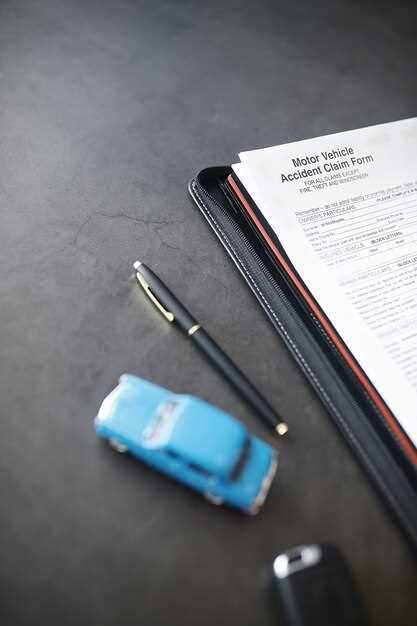

When it comes to purchasing a motorcycle, understanding the necessary paperwork is crucial for a smooth transaction. This process not only involves financial considerations but also legal documentation that ensures the motorcycle is registered and fully compliant with state laws. Failing to gather the correct paperwork can lead to complications down the line, affecting everything from ownership transfer to insurance coverage.
First and foremost, prospective buyers need to acquire the appropriate title document from the seller. This title acts as proof of ownership and is mandatory for registering the motorcycle in the buyer’s name. If the motorcycle is financed, the lender may hold the title until the loan is fully paid, making it essential for buyers to verify the seller’s claims. Additionally, a bill of sale is often required, detailing the transaction’s specifics, including purchase price and vehicle identification number (VIN).
In addition to the title and bill of sale, buyers must also consider other paperwork such as a valid driver’s license with a motorcycle endorsement. This serves not only as identification but also confirms that the buyer is legally permitted to operate the motorcycle. Lastly, obtaining insurance prior to riding is not just advisable; it is also a legal requirement in many places, making proof of coverage another critical document in the motorcycle purchasing process.
Necessary Documents for Motorcycle Purchase
When purchasing a motorcycle, it is essential to have the correct documentation ready to ensure a smooth transaction and lawful ownership transfer. The following documents are typically required for the purchase of a motorcycle:
1. Bill of Sale: This document serves as proof of the transaction between the seller and the buyer. It should include details such as the purchase price, vehicle identification number (VIN), make, model, and year of the motorcycle, as well as the names and signatures of both parties.
2. Title Certificate: The title is a legal document that proves ownership of the motorcycle. It is crucial to ensure that the title is clear and that the seller has the legal right to transfer ownership. If applicable, all liens must be released before the sale can proceed.
3. Identification: Buyers are typically required to present a government-issued photo ID, such as a driver’s license or passport. This helps verify the identity of the purchaser as a measure against fraud.
4. Insurance Information: Many states require motorcycle insurance before the purchase can be finalized. Buyers should have proof of insurance coverage, which may be necessary for registration as well.
5. Odometer Disclosure Statement: Federal law mandates that an odometer disclosure must be provided for all used motorcycles to validate the mileage indicated on the title. This helps prevent odometer fraud.
6. Emission and Safety Certificates: Depending on local regulations, a motorcycle may need to pass emission standards or safety inspections before it can be legally registered. Buyers should check their state’s requirements.
Having these essential documents allows for a legitimate transfer of ownership and helps avoid future complications. Ensuring all paperwork is completed accurately will facilitate a positive buying experience.
How to Transfer Ownership After Buying a Motorcycle

Transferring ownership of a motorcycle is a crucial step after completing your purchase. Proper paperwork ensures that the vehicle is legally registered in your name and protects you from potential liabilities.
Firstly, obtain the signed title from the seller, which serves as proof of ownership. Ensure that both you and the seller fill out the title transfer section correctly, including any required odometer readings if applicable.
Next, gather any additional paperwork that might be needed in your state. This can include a bill of sale, which outlines the purchase details, and any emission or safety inspection certificates if they are mandated in your region.
After securing the necessary documents, visit your local Department of Motor Vehicles (DMV) or equivalent agency. During this visit, you will submit the paperwork, pay any applicable fees, and possibly complete a new registration form for the motorcycle.
It’s essential to check with your local regulations as requirements can vary by state or country. Make sure to ask about any insurance coverage needed during the ownership transfer process, as some locations require proof of insurance for registration.
Once all paperwork is processed, you will receive a new title and registration in your name, finalizing the ownership transfer of your motorcycle. Keep these documents in a safe place as they are important for your records and future transactions.
Understanding Motorcycle Registration and Insurance Requirements

When acquiring ownership of a motorcycle, understanding the registration and insurance requirements is essential for legal compliance and protection. Each state has specific laws regarding the registration process and the type of insurance coverage needed.
Motorcycle Registration: After purchasing a motorcycle, the owner must register it with the appropriate state department. This process typically involves submitting a completed application form, proof of identity, and documents like the motorcycle’s title or bill of sale. Fees may vary based on the motorcycle’s value or type, and it’s crucial to complete the registration within a specified timeframe to avoid penalties.
Insurance Requirements: Most states mandate motorcycle insurance as a condition of registration. Basic liability coverage is usually the minimum required, which protects other parties in the event of an accident. However, owners should also consider additional coverage options such as collision, comprehensive, and uninsured motorist protection. This ensures financial security in case of theft, damage, or accidents that involve uninsured riders.
Understanding these requirements not only ensures lawful ownership but also provides peace of mind while riding. Motorcycle owners should regularly check their state’s regulations, as laws regarding registration and insurance can change.
